- Introduction
- Historical Roots of Ecotherapy
- Theoretical Foundations of Ecotherapy
- Types of Ecotherapy Practices
- Scientific Evidence on the Benefits of Ecotherapy
- Applications of Ecotherapy
- The Role of Ecotherapists
- Ecotherapy and Environmental Conservation
- Challenges and Considerations in Ecotherapy
- Future Directions in Ecotherapy
- Conclusion
- FAQ
Introduction
Ecotherapy encompasses a wide range of nature-centered approaches to healing and well-being. Sometimes also referred to as nature therapy or green therapy, ecotherapy helps treat both the physical and psychological ailments of the human condition by reestablishing a strong connection with the natural world.
The connection between nature and mental well-being has been recognized for centuries by various cultures and traditions. Many studies have found that spending time in nature can have positive effects on mood, stress, anxiety, depression, and other mental health issues. Nature can also provide a source of inspiration, creativity, and spirituality for many people.
Ecotherapy is an emerging field in mental health that aims to integrate the benefits of nature into therapeutic practice. Ecotherapy can involve loosely structured activities, such as walking, gardening, or meditating in natural settings, or more formal approaches, such as wilderness therapy, animal-assisted therapy, or park prescriptions. Ecotherapy can be practiced individually or in groups, with or without the guidance of a professional therapist.
Historical Roots of Ecotherapy
Ecotherapy is not a new concept, but rather a rediscovery of the ancient and historical practices that connected nature and healing. Throughout history, many cultures and civilizations have recognized the healing power of nature and incorporated it into their rituals, ceremonies, and lifestyles.
Some examples of historical and cultural practices that connected nature and healing are:
- The ancient Greeks and Romans built temples and sanctuaries in natural settings, such as forests, mountains, and springs, where people could seek healing and purification.
- The Native Americans and other indigenous peoples used nature as a source of medicine, wisdom, and spirituality. They believed that everything in nature had a spirit and a purpose and that humans were part of the web of life.
- The Chinese and Japanese cultures developed philosophies and practices, such as Taoism, Feng Shui, and Zen, that emphasized the harmony and balance between humans and nature. They also cultivated the art of gardening, such as bonsai and ikebana, as a way of expressing and appreciating the beauty of nature.
- The Celtic and Nordic cultures celebrated the seasons and the cycles of nature with festivals, such as Beltane, Samhain, and Yule, that marked the transitions and transformations of life.
Ecotherapy has evolved in response to the modern challenges and mental health issues that arise from the disconnection and alienation from nature. The industrialization, urbanization, and globalization of the world have created a fast-paced, stressful, and materialistic lifestyle that often neglects the emotional, spiritual, and ecological needs of humans. Ecotherapy offers a way to reconnect with nature and restore the sense of belonging, meaning, and well-being that many people crave.
Theoretical Foundations of Ecotherapy
Ecotherapy is based on several theoretical frameworks that explain the relationship between humans and nature, and how this relationship affects mental health. Some of the key theoretical frameworks in ecotherapy are:
- Biophilia: This is the hypothesis that humans have an innate tendency to seek connection with nature and other forms of life. Biophilia suggests that humans evolved in natural environments and that being in nature is essential for their well-being. Biophilia also implies that humans have a moral responsibility to care for and protect nature, as it is part of their identity and heritage.
- Ecopsychology: This is the interdisciplinary field that studies the psychological and ecological aspects of human-nature interactions. Ecopsychology proposes that humans are not separate from nature, but rather embedded in a complex web of interdependent relationships. Ecopsychology also argues that many of the modern mental health problems are caused by the alienation and destruction of nature and that healing requires reconnecting with nature and restoring ecological balance.
Ecotherapy draws on these and other theoretical frameworks to inform its practices and goals. Ecotherapy aims to foster a sense of belonging, meaning, and purpose in life by enhancing the human-nature connection. Ecotherapy also seeks to promote ecological awareness, responsibility, and action by cultivating a sense of empathy and compassion for nature and all living beings.
Types of Ecotherapy Practices
Ecotherapy can take many forms and modalities, depending on the needs, preferences, and goals of the participants. Some of the common types of ecotherapy practices are:
- Wilderness therapy and nature-based interventions: These are programs that involve immersing oneself in natural settings, such as forests, mountains, or deserts, for an extended period of time, usually with the guidance of a therapist or a facilitator. Wilderness therapy and nature-based interventions can help participants develop self-reliance, resilience, confidence, and coping skills, as well as address issues such as trauma, addiction, depression, and anxiety.
- Gardening and horticulture as therapeutic activities: These are activities that involve growing, tending, and harvesting plants, flowers, fruits, and vegetables, either individually or in groups, in gardens, farms, or greenhouses. Gardening and horticulture can provide physical exercise, sensory stimulation, social interaction, and creative expression, as well as improve mood, self-esteem, and cognitive functioning.
- Animal-assisted therapy and interactions with nature: These are activities that involve interacting with animals, such as dogs, cats, horses, or birds, either in natural or artificial settings, such as zoos, aquariums, or animal shelters. Animal-assisted therapy and interactions with nature can offer emotional support, companionship, and unconditional acceptance, as well as reduce stress, loneliness, and aggression.
- Adventure therapy and outdoor experiential activities: These are activities that involve engaging in challenging, exciting, and fun experiences, such as rock climbing, kayaking, hiking, or camping, either individually or in groups, in outdoor environments. Adventure therapy and outdoor experiential activities can enhance physical fitness, mental health, and interpersonal skills, as well as foster a sense of achievement, empowerment, and adventure.
These are some of the diverse ecotherapeutic modalities and their applications. Ecotherapy can be tailored to suit the needs and interests of different populations, such as children, adolescents, adults, seniors, veterans, refugees, or people with disabilities. Ecotherapy can also be integrated with other forms of therapy, such as cognitive-behavioral therapy, mindfulness, or art therapy, to enhance their effectiveness and outcomes.
Scientific Evidence on the Benefits of Ecotherapy
Ecotherapy is not only a theoretical or philosophical approach but also a scientific and evidence-based one. There is a growing body of research that supports the positive effects of nature on mental health and well-being. Some of the research findings are:
- Exposure to natural environments can reduce blood pressure, heart rate, cortisol levels, and inflammation, which are associated with stress and chronic diseases.
- Spending time in nature can improve mood, attention, memory, creativity, and problem-solving skills, as well as prevent or alleviate depression, anxiety, and attention deficit hyperactivity disorder.
- Contact with nature can increase happiness, life satisfaction, self-esteem, and optimism, as well as decrease loneliness, boredom, and hopelessness.
- Engagement with nature can foster a sense of awe, wonder, and gratitude, which are linked to positive emotions, spirituality, and prosocial behavior.
These and other studies suggest that ecotherapy can be a valuable and effective complementary approach in mental healthcare. Ecotherapy can offer a holistic, humanistic, and ecological perspective that can enrich and expand the conventional models of mental health. Ecotherapy can also empower and inspire people to take charge of their own healing and well-being, as well as contribute to the healing and well-being of the planet.
Applications of Ecotherapy
Ecotherapy can be applied to a wide range of mental health issues and populations, as it offers a flexible, accessible, and affordable way of healing. Some of the applications of ecotherapy are:
- Use of ecotherapy in treating stress, anxiety, and depression: Stress, anxiety, and depression are some of the most common and debilitating mental health problems in the modern world. Ecotherapy can help reduce the symptoms and causes of these disorders by providing a natural and relaxing environment, a sense of calm and peace, and a positive distraction from negative thoughts and feelings. Ecotherapy can also help increase the levels of serotonin, dopamine, and endorphins, which are neurotransmitters that regulate mood, motivation, and pleasure.
- Applications in trauma recovery and post-traumatic stress disorder (PTSD): Trauma and PTSD are serious and complex conditions that result from exposure to life-threatening or overwhelming events, such as violence, abuse, accidents, or disasters. Ecotherapy can help in the recovery process by offering a safe and supportive space, a sense of control and empowerment, and an opportunity to process and heal the traumatic memories. Ecotherapy can also help restore the trust and connection with oneself, others, and the world, which are often damaged by trauma.
- Consideration of ecotherapy in addressing attention disorders and improving cognitive function: Attention disorders, such as attention deficit hyperactivity disorder (ADHD), are characterized by difficulties in focusing, organizing, and completing tasks, as well as impulsivity and hyperactivity. Ecotherapy can help improve the attention and cognitive function of people with these disorders by stimulating the senses, enhancing concentration, and reducing the distractions and stimuli that often overwhelm them. Ecotherapy can also help boost executive functions, such as planning, decision-making, and problem-solving, which are essential for academic and professional success.
- Ecotherapy’s role in promoting overall well-being and preventing mental health issues: Ecotherapy is not only beneficial for people who already have mental health issues but also for anyone who wants to improve their overall well-being and prevent future problems. Ecotherapy can help enhance the physical, mental, emotional, and spiritual aspects of well-being by providing opportunities for exercise, learning, growth, and fulfillment. Ecotherapy can also help prevent mental health issues by increasing the resilience, coping skills, and self-care abilities of the participants.
The Role of Ecotherapists
Ecotherapists are professionals who facilitate and guide the ecotherapy process for their clients. Ecotherapists can have different backgrounds, such as psychology, counseling, social work, education, or environmental studies, but they all share a common interest and passion for nature and healing. Some of the roles and responsibilities of ecotherapists are:
- Training and qualifications required for ecotherapists: There is no standardized or formal training or certification for ecotherapists, as the field is still relatively new and evolving. However, ecotherapists are expected to have a solid foundation in both the theory and practice of ecotherapy, as well as the relevant ethical and legal issues. Ecotherapists can acquire their knowledge and skills through various sources, such as academic courses, workshops, books, journals, or online resources. Ecotherapists can also seek supervision, mentoring, or peer support from other experienced ecotherapists.
- Importance of ethical considerations in ecotherapy practices: Ecotherapy involves working with both human and non-human clients, which poses unique and complex ethical challenges. Ecotherapists need to be aware of and respect the rights, needs, and preferences of both their human and non-human clients, as well as the potential risks and benefits of their interventions. Ecotherapists also need to adhere to the ethical codes and standards of their profession, as well as the laws and regulations of their location. Ecotherapists need to ensure that their practices are safe, effective, and appropriate for their clients and the environment.
- Building a therapeutic alliance and fostering a connection between clients and nature: One of the most important and distinctive aspects of ecotherapy is the role of nature as a co-therapist. Ecotherapists need to build a strong and trusting relationship with their clients, as well as with nature. Ecotherapists need to help their clients feel comfortable, supported, and engaged in the natural setting, as well as encourage them to explore, discover, and interact with nature. Ecotherapists need to help their clients develop a deeper and more meaningful connection with nature, as well as with themselves and others.
Ecotherapy and Environmental Conservation
Ecotherapy is not only a way of healing humans, but also a way of healing the planet. Ecotherapy recognizes the interdependence and reciprocity between humans and nature, and how their well-being is mutually affected. Ecotherapy can contribute to the conservation and restoration of the environment in several ways:
- Exploration of the symbiotic relationship between ecotherapy and environmental stewardship: Ecotherapy can help people realize and appreciate the value and beauty of nature, as well as the services and benefits it provides for human health and well-being. Ecotherapy can also help people understand and acknowledge the impact and responsibility they have on the environment, as well as the consequences and implications of their actions. Ecotherapy can thus foster a sense of stewardship and care for the environment, as well as motivation and commitment to protect and preserve it.
- Discussion of how ecotherapy can contribute to a sense of ecological responsibility: Ecotherapy can help people develop a sense of ecological responsibility, which is the awareness and concern for the well-being of the environment and all living beings. Ecotherapy can help people cultivate a sense of empathy and compassion for nature and other species, as well as a sense of justice and equity for environmental issues and challenges. Ecotherapy can also help people adopt a more sustainable and eco-friendly lifestyle, such as reducing their consumption, waste, and carbon footprint, and supporting the environmental causes and movements.
- Consideration of ecotherapy’s potential role in fostering a deeper connection to the natural world: Ecotherapy can help people foster a deeper connection to the natural world, which is the feeling of belonging, harmony, and unity with nature and the cosmos. Ecotherapy can help people experience and express the spiritual and transcendent aspects of nature, such as awe, wonder, gratitude, and joy. Ecotherapy can also help people discover and fulfill their purpose and role in the natural world, as well as their connection and contribution to the greater whole.
Challenges and Considerations in Ecotherapy
Ecotherapy is not without its challenges and considerations, as it involves working with complex and dynamic systems, both human and natural. Some of the challenges and considerations in ecotherapy are:
- Addressing accessibility issues and urban environments: Ecotherapy can be limited by the availability and accessibility of natural spaces, especially for people who live in urban areas, have low income, or face other barriers. Ecotherapy can also be affected by the quality and diversity of the natural environments, as well as environmental issues and threats, such as pollution, climate change, and biodiversity loss. Ecotherapists need to find creative and inclusive ways to bring nature to people, or people to nature, such as using urban green spaces, community gardens, or virtual reality.
- Ethical considerations in conducting therapy outdoors: Ecotherapy can pose ethical dilemmas and challenges, as it involves working in public and unpredictable settings, where privacy, confidentiality, and safety may be compromised. Ecotherapy can also raise ethical questions about the consent, autonomy, and welfare of non-human participants, such as animals, plants, or ecosystems. Ecotherapists need to follow the ethical principles and guidelines of their profession, as well as the specific codes and standards of ecotherapy, such as the Ecological Code of Ethics.
- Balancing the benefits of nature exposure with individual preferences and needs: Ecotherapy can have different effects and outcomes for different people, depending on their personality, background, culture, and preferences. Ecotherapy can also have varying degrees of intensity and duration, depending on the type and frequency of the activities and interventions. Ecotherapists need to assess and tailor the ecotherapy process to suit the individual needs and goals of their clients, as well as monitor and evaluate their progress and feedback.
Future Directions in Ecotherapy
Ecotherapy is a dynamic and evolving field, that has the potential to grow and expand in the future. Some of the future directions in ecotherapy are:
- Exploration of emerging trends and innovations in ecotherapy: Ecotherapy can benefit from the advances and developments in technology, science, and art, that can offer new and exciting ways of connecting and interacting with nature. Some of the emerging trends and innovations in ecotherapy are digital and immersive technologies, such as virtual reality, augmented reality, or biofeedback; neuroscience and neurofeedback, which can measure and enhance the brain activity and responses to nature; and creative and expressive arts, and such as music, dance, or storytelling, that can enrich and deepen the experience and expression of nature.
- Consideration of the integration of ecotherapy into mainstream mental health practices: Ecotherapy can complement and supplement the existing and conventional mental health practices, that can benefit from the added value and perspective of nature. Ecotherapy can also challenge and transform the mainstream mental health practices, that can adopt a more holistic, humanistic, and ecological approach. Ecotherapy can be integrated into various settings and contexts, such as schools, workplaces, hospitals, or prisons, where it can reach and serve a wider and more diverse population.
- Potential research areas and advancements in the field: Ecotherapy can be supported and enhanced by the research and evidence that can demonstrate and explain its effectiveness and mechanisms. Ecotherapy can also generate and contribute to the research and knowledge that can advance and improve the field and practice. Some of the potential research areas and advancements in the field are: developing and testing new and innovative ecotherapy methods and models; exploring and comparing the effects and outcomes of different types and doses of nature exposure; and investigating and understanding the underlying physiological and psychological processes and pathways of ecotherapy.
Conclusion
Ecotherapy is a nature-based approach to healing that can help treat and prevent a variety of mental health issues and enhance the overall well-being of humans and the planet. Ecotherapy has based on the premise that humans have an innate and essential connection to nature, that can provide a source of healing, inspiration, and fulfillment. Ecotherapy is also based on the recognition that humans and nature are interdependent and reciprocal and that their well-being is mutually affected.
Ecotherapy can offer a range of benefits and outcomes, such as reducing stress, anxiety, and depression; improving mood, attention, and cognitive function; increasing happiness, self-esteem, and optimism; fostering a sense of awe, gratitude, and spirituality; and promoting a sense of ecological responsibility and stewardship.
Ecotherapy can take many forms and modalities, such as wilderness therapy, gardening, animal-assisted therapy, or adventure therapy, that can suit the needs and preferences of different people and populations. Ecotherapy can also be integrated with other forms of therapy, such as cognitive-behavioral therapy, mindfulness, or art therapy, to enhance their effectiveness and outcomes.
Ecotherapy is not without its challenges and considerations, such as addressing accessibility issues, ethical dilemmas, and individual differences. Ecotherapy is also a dynamic and evolving field, that has the potential to grow and expand in the future, with the help of emerging trends, innovations, and research.
Ecotherapy is a powerful and promising way of healing your mind with nature. We encourage you to explore and experience the healing power of nature for yourself and see how it can transform your life and well-being. Ecotherapy is not only a way of healing, but also a way of living, that can help you reconnect with yourself, others, and the world.
Ecotherapy is an ongoing evolution and potential of mental health, that can help you and the planet heal together.
FAQ
How does ecotherapy and nature affect mental health?
Ecotherapy and nature affect mental health by providing a natural and relaxing environment, a sense of calm and peace, and a positive distraction from negative thoughts and feelings. Ecotherapy and nature can also stimulate the senses, enhance the mood, and increase the levels of neurotransmitters that regulate happiness and well-being.
How nature heals the mind?
Nature heals the mind by offering a safe and supportive space, a sense of control and empowerment, and an opportunity to process and heal traumatic memories. Nature can also restore the trust and connection with oneself, others, and the world, which are often damaged by trauma.
How does nature help your mental health?
Nature helps your mental health by improving your attention, memory, creativity, and problem-solving skills, as well as preventing or alleviating depression, anxiety, and attention deficit hyperactivity disorder. Nature can also increase your happiness, life satisfaction, self-esteem, and optimism, as well as decrease your loneliness, boredom, and hopelessness.
How do you do ecotherapy?
You can do ecotherapy by spending time in natural settings, such as forests, mountains, or beaches, or by participating in more formal approaches, such as wilderness therapy, animal-assisted therapy, or park prescriptions. You can also do ecotherapy by gardening, meditating, or doing yoga outdoors, or by interacting with animals, plants, or ecosystems.
What is ecotherapy?
Ecotherapy is a nature-based approach to healing that can help treat and prevent a variety of mental health issues and enhance the overall well-being of humans and the planet. Ecotherapy is based on the premise that humans have an innate and essential connection to nature, that can provide a source of healing, inspiration, and fulfillment.
What are the benefits of ecotherapy?
Ecotherapy can offer a range of benefits and outcomes, such as reducing stress, anxiety, and depression; improving mood, attention, and cognitive function; increasing happiness, self-esteem, and optimism; fostering a sense of awe, gratitude, and spirituality; and promoting a sense of ecological responsibility and stewardship.
What are the types of ecotherapy?
Ecotherapy can take many forms and modalities, such as wilderness therapy, gardening, animal-assisted therapy, or adventure therapy, that can suit the needs and preferences of different people and populations. Ecotherapy can also be integrated with other forms of therapy, such as cognitive-behavioral therapy, mindfulness, or art therapy, to enhance their effectiveness and outcomes.
How does ecotherapy work in practice?
Ecotherapy can involve loosely structured activities, such as walking, gardening, or meditating in natural settings, or more formal approaches, such as wilderness therapy, animal-assisted therapy, or park prescriptions. Ecotherapy can be practiced individually or in groups, with or without the guidance of a professional therapist.
How can I do ecotherapy?
You can do ecotherapy by spending time in natural settings, such as forests, mountains, or beaches, or by participating in more formal approaches, such as wilderness therapy, animal-assisted therapy, or park prescriptions. You can also do ecotherapy by gardening, meditating, or doing yoga outdoors, or by interacting with animals, plants, or ecosystems.
What are the challenges and considerations in ecotherapy?
Ecotherapy can pose ethical dilemmas and challenges, as it involves working in public and unpredictable settings, where privacy, confidentiality, and safety may be compromised. Ecotherapy can also raise ethical questions about the consent, autonomy, and welfare of non-human participants, such as animals, plants, or ecosystems. Ecotherapy can also be limited by the availability and accessibility of natural spaces, especially for people who live in urban areas, have low incomes, or face other barriers. Ecotherapy can also have different effects and outcomes for different people, depending on their personality, background, culture, and preferences.
How can I become a nature therapist?
There is no standardized or formal training or certification for ecotherapists, as the field is still relatively new and evolving. However, ecotherapists are expected to have a solid foundation in both the theory and practice of ecotherapy, as well as the relevant ethical and legal issues. Ecotherapists can acquire their knowledge and skills through various sources, such as academic courses, workshops, books, journals, or online resources. Ecotherapists can also seek supervision, mentoring, or peer support from other experienced ecotherapists.
How can ecotherapy contribute to environmental conservation?
Ecotherapy can contribute to the conservation and restoration of the environment by fostering a sense of stewardship and care for the environment, as well as a motivation and commitment to protect and preserve it. Ecotherapy can also help people develop a sense of ecological responsibility, which is the awareness and concern for the well-being of the environment and all living beings. Ecotherapy can also help people adopt a more sustainable and eco-friendly lifestyle, such as reducing their consumption, waste, and carbon footprint, and supporting the environmental causes and movements.
What are the future directions in ecotherapy?
Ecotherapy is a dynamic and evolving field, that has the potential to grow and expand in the future. Some of the future directions in ecotherapy are: developing and testing new and innovative ecotherapy methods and models; exploring and comparing the effects and outcomes of different types and doses of nature exposure; investigating and understanding the underlying physiological and psychological processes and pathways of ecotherapy; integrating ecotherapy into mainstream mental health practices; and benefiting from the advances and developments in technology, science, and art, that can offer new and exciting ways of connecting and interacting with nature.
*Image credits- freepik*
Important Notice:
The information provided on “health life ai” is intended for informational purposes only. While we have made efforts to ensure the accuracy and authenticity of the information presented, we cannot guarantee its absolute correctness or completeness. Before applying any of the strategies or tips, please consult a professional medical adviser.















